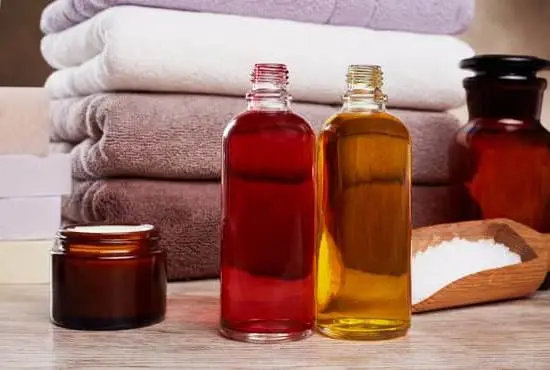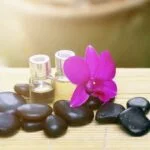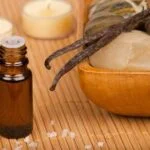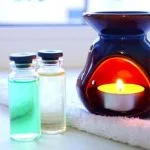Aromatherapy, also known as essential oil therapy, is a holistic healing treatment that uses natural plant extracts to promote health and well-being. The use of essential oils for aromatherapy has gained popularity for its potential to improve physical, mental, and emotional health. In this article, we will explore the concept and benefits of using essential oils for aromatherapy, as well as provide a comprehensive list of popular essential oils commonly used in this practice.
Using essential oils for aromatherapy can offer a wide range of benefits, including stress relief, improved mood, and pain relief. The therapeutic properties of these oils have been known to have a positive impact on overall wellness. Some popular essential oils used in aromatherapy include lavender, peppermint, eucalyptus, and more. Each oil has its own unique properties and benefits, making them suitable for various purposes such as relaxation, focus, immune support, and more.
In the following sections, we will delve into the different ways to use essential oils for aromatherapy, safety precautions to consider when using these potent plant extracts, how to choose the right oils for specific needs and even share some DIY aromatherapy recipes for blends and applications. Whether you’re new to aromatherapy or looking to expand your knowledge on utilizing essential oils for holistic well-being, this article aims to provide valuable insights into the diverse world of aromatherapy.
Popular Essential Oils
When it comes to aromatherapy, essential oils play a crucial role in providing therapeutic benefits for both the mind and body. There is a wide range of essential oils to choose from, each with its own unique properties and potential benefits. Some of the most popular essential oils used in aromatherapy include lavender, peppermint, and eucalyptus.
Lavender Oil
Lavender oil is one of the most versatile and widely used essential oils in aromatherapy. Known for its calming and soothing properties, lavender oil is often used to promote relaxation, reduce stress, and improve sleep quality. It has a pleasant floral aroma that makes it a popular choice for creating a serene and tranquil ambiance in any space.
Peppermint Oil
Peppermint oil is renowned for its invigorating and refreshing scent. This essential oil is commonly used to help alleviate headaches, reduce nausea, and boost mental alertness. The cooling sensation of peppermint oil makes it an excellent choice for creating energizing blends that can help enhance focus and concentration.
Eucalyptus Oil
Eucalyptus oil is valued for its powerful respiratory benefits. Its crisp, clean aroma can help clear the airways and promote easier breathing. Eucalyptus oil is often incorporated into aromatherapy blends to provide relief from congestion due to colds or allergies. Additionally, it can also be used as a natural insect repellent, making it a versatile choice for various wellness applications.
In addition to these three popular essential oils, there are numerous other options available that offer their own unique benefits for aromatherapy. Exploring the diverse world of essential oils can open up a wealth of possibilities for enhancing well-being through natural methods. Whether you’re seeking stress relief, mood enhancement, or physical pain management, there’s sure to be an essential oil that aligns with your needs and preferences within the expansive aromatherapy list of oils.
Benefits of Aromatherapy
Aromatherapy has become increasingly popular as a natural way to promote relaxation, reduce stress, and enhance overall well-being. The use of essential oils for aromatherapy offers a wide range of benefits for the mind, body, and spirit. From stress relief and improved mood to pain relief and immune support, these powerful plant extracts can positively impact various aspects of one’s health.
One of the key mental benefits of using essential oils for aromatherapy is stress relief. Certain oils, such as lavender, chamomile, and bergamot, have been shown to help reduce feelings of anxiety and promote a sense of calm. Inhaling the aroma of these oils or using them in a diffuser can create a soothing environment that helps ease tension and promote relaxation.
Emotionally, essential oils can also have a profound impact on mood. Oils like citrus (such as orange or lemon) and peppermint are known for their uplifting and energizing properties. These scents can help boost mood and alleviate feelings of fatigue or sluggishness. Additionally, studies have shown that certain essential oils may even have potential antidepressant effects when used consistently over time.
On a physical level, essential oils are valued for their ability to provide pain relief and support overall wellness. Oils like eucalyptus, peppermint, and ginger are often used topically to soothe sore muscles or alleviate headaches. Meanwhile, other oils like tea tree and oregano are prized for their antimicrobial properties, making them useful for supporting the immune system.
In summary, aromatherapy offers an array of mental, emotional, and physical benefits that make it an appealing option for those seeking natural approaches to health and wellness.
| Essential Oil | Benefit |
|---|---|
| Lavender | Stress Relief |
| Peppermint | Pain Relief |
| Eucalyptus | Congestion Relief |
| Bergamot | Mood Improvement |
How to Use Essential Oils
Diffusing Essential Oils
One of the most popular methods of using essential oils for aromatherapy is through diffusion. This method involves dispersing the aroma of essential oils into the air, allowing them to be inhaled and absorbed by the body. Diffusers come in various types, including ultrasonic, nebulizing, and heat-based diffusers.
To diffuse essential oils, simply add a few drops of your chosen oil to water and let the diffuser work its magic. This method is great for creating a calming atmosphere in your home or workspace.
Topical Application of Essential Oils
Another common way to use essential oils for aromatherapy is through topical application. When using this method, it’s important to dilute the essential oil with a carrier oil, such as coconut oil or almond oil, to avoid skin irritation. Once diluted, you can apply the oil directly to your skin or add it to bathwater for a luxurious soak. Topical application is ideal for targeting specific areas of discomfort or tension, providing localized relief.
Inhalation of Essential Oils
Inhalation is a direct method of experiencing the benefits of essential oils for aromatherapy. This can be done by adding a few drops of oil to a bowl of hot water and inhaling the steam, or by using personal inhalers designed specifically for aromatherapy purposes. Inhaling essential oils can have quick effects on mood and overall well-being, making it an effective method for stress relief or mental clarity.
By understanding and utilizing these different methods of using essential oils for aromatherapy, individuals can experience the wide range of benefits that these natural remedies have to offer. Whether it’s diffusing calming scents throughout one’s home, topical application for targeted relief, or inhalation for immediate mood enhancement – there are numerous ways to incorporate aromatherapy into daily life.
Additionally mentioned so many ideas about various techniques which help peoples how they can use those aromatic items effectively?
Safety Precautions
When using essential oils for aromatherapy, it is important to be aware of the potential risks and safety measures that come with their use. Essential oils are highly concentrated and potent extracts from plants, which means they should be handled with care to avoid adverse reactions. Here are some important safety precautions to keep in mind when using essential oils for aromatherapy:
Safety Precautions
- Dilution: Essential oils should always be diluted before applying them to the skin to prevent irritation or sensitization. It is recommended to mix essential oils with a carrier oil, such as coconut oil or jojoba oil, before applying them topically.
- Allergic Reactions: Some individuals may have allergic reactions to certain essential oils. It is important to perform a patch test before using an essential oil for the first time, especially if you have sensitive skin or known allergies.
- Proper Storage: Essential oils should be stored in a cool, dark place away from direct sunlight and heat. This helps preserve their potency and prevents them from going rancid. Additionally, essential oils should be kept out of reach of children and pets.
By following these safety precautions, you can enjoy the benefits of aromatherapy without having to worry about any adverse effects. It is also important to educate yourself about each individual essential oil before use, as some may have specific safety considerations based on their chemical composition.
Remember that while essential oils offer numerous benefits for well-being, they should be used mindfully and responsibly. With proper knowledge and care, you can incorporate aromatherapy into your self-care routine safely and effectively.
It is important for anyone using essential oils for aromatherapy to familiarize themselves with these safety precautions in order to ensure a positive experience and avoid any potential risks or adverse effects.
For more information on different types of essential oils commonly used in aromatherapy lists of great options can easily be found by conducting some research online or consulting with a certified aromatherapist who can provide guidance on selecting the best essential oils for specific purposes such as relaxation, focus, and immune support.
Choosing the Right Oils
When it comes to selecting the best essential oils for aromatherapy, it is essential to consider the specific purposes you are looking to address. Different essential oils offer various benefits and can be used to promote relaxation, improve focus, or provide immune support.
One of the most popular essential oils for relaxation is lavender, known for its calming properties and ability to reduce stress and anxiety. For those seeking improved focus and mental clarity, rosemary and peppermint essential oils are excellent choices due to their invigorating and stimulating effects.
If you are looking to support your immune system through aromatherapy, eucalyptus and tea tree essential oils are highly recommended. Eucalyptus oil has natural decongestant properties that can help clear the sinuses and alleviate respiratory issues, while tea tree oil is renowned for its antimicrobial and antiseptic qualities. These essential oils can be diffused or used in topical applications to harness their immune-boosting benefits effectively.
In addition to these specific purposes, it is important to keep in mind personal preferences when choosing essential oils for aromatherapy. Some individuals may find certain scents more appealing or soothing than others, so experimenting with different oils to find what works best for you is encouraged.
| Popular Essential Oils | Purposes |
|---|---|
| Lavender | Relaxation, stress relief |
| Rosemary, Peppermint | Improved focus, mental clarity |
| Eucalyptus, Tea Tree | Immune support |
Remember that when using essential oils for aromatherapy, it’s crucial to choose high-quality, pure oils from reputable sources. Ensuring that the essential oils are sourced from trusted suppliers will guarantee their efficacy and safety for use in aromatherapy practices. By carefully selecting the right essential oils based on their purposes and ensuring their quality, you can fully experience the therapeutic benefits of aromatherapy in your daily life.
Aromatherapy Recipes
Aromatherapy is not only about enjoying pleasant scents; it can also provide numerous benefits for your mental, emotional, and physical well-being. One of the best ways to experience the benefits of aromatherapy is by creating your own DIY essential oil blends and applications. This section will share a collection of aromatherapy recipes that you can easily make at home to enhance your overall wellness.
One popular DIY aromatherapy recipe is a sleep-inducing pillow spray. Lavender essential oil is known for its calming and relaxing properties, making it an excellent choice for promoting a good night’s sleep. To create a sleep-inducing pillow spray, simply combine a few drops of lavender essential oil with water in a small spray bottle. Before bedtime, lightly spritz the lavender-scented mist onto your pillow to create a soothing and peaceful sleep environment.
Another beneficial DIY aromatherapy recipe is a headache-relief massage oil. Peppermint essential oil has analgesic and anti-inflammatory properties that can help alleviate tension headaches and migraines. To make a headache-relief massage oil, mix several drops of peppermint essential oil with a carrier oil, such as sweet almond or jojoba oil. Gently massage the aromatic blend onto your temples and neck to experience relief from headaches and promote relaxation.
By incorporating these DIY aromatherapy recipes into your daily routine, you can harness the natural healing powers of essential oils for various purposes, such as improving sleep quality and alleviating discomfort from headaches. Experimenting with different essential oils and blending techniques will allow you to personalize your aromatherapy experience according to your specific needs and preferences.
Remember that when using essential oils for aromatherapy purposes, it’s important to choose high-quality oils and follow safety guidelines regarding proper dilution and application methods to ensure a positive and safe experience. As you explore the world of aromatherapy recipes, you’ll discover an array of possibilities for enhancing your well-being through the therapeutic use of essential oils.
Conclusion
In conclusion, the use of essential oils for aromatherapy offers a wide range of benefits for mental, emotional, and physical well-being. From stress relief to pain management, these natural oils have proven to be effective in promoting holistic health. The popularity of aromatherapy continues to grow as people seek alternative and complementary methods for self-care and wellness. The diverse world of aromatherapy provides an endless array of essential oils with unique properties, scents, and therapeutic benefits.
As highlighted in the article, the aromatherapy list of oils includes popular options such as lavender, peppermint, and eucalyptus, each offering its own distinct advantages. It’s important for individuals to explore and experiment with different essential oils to find out which ones work best for them based on their specific needs and preferences. Additionally, the detailed instructions on how to use essential oils – whether through diffusing, topical application, or inhalation – provide a comprehensive guide for beginners and enthusiasts alike.
The key takeaway from this article is that using essential oils for aromatherapy can greatly contribute to one’s overall well-being. Whether it’s creating personalized blends or following DIY recipes like a sleep-inducing pillow spray or headache-relief massage oil, there are countless ways to incorporate aromatherapy into daily routines.
With proper knowledge about safety precautions and choosing the right oils for specific purposes, individuals can harness the power of aromatherapy to enhance their health and quality of life. Embracing the world of aromatherapy opens up a realm of natural remedies and holistic approaches that can positively impact both body and mind.
Frequently Asked Questions
What Are the 10 Best Essential Oils to Try for Aromatherapy?
The 10 best essential oils to try for aromatherapy include lavender, tea tree, peppermint, eucalyptus, lemon, bergamot, chamomile, rosemary, ylang-ylang, and sandalwood. Each oil has unique therapeutic properties that can address various physical and emotional needs.
What Are the Top 20 Essential Oils?
The top 20 essential oils cover a wide range of therapeutic benefits such as relaxation, stress relief, skin care, and immune support. Some popular choices include frankincense, cedarwood, geranium, ginger, jasmine, marjoram, myrrh, neroli, patchouli, and vetiver among others.
What Are the 18 Best Essential Oils?
When it comes to the best essential oils for various purposes like relaxation or pain relief there are several options available. Some of the 18 best essential oils include clary sage, cypress, helichrysum, juniper berry , lemongrass , palmarosa , petitgrain , and thyme among others that offer a range of wellness benefits for mind and body.

Are you looking for a natural way to improve your health and wellbeing?
If so, aromatherapy may be the answer for you.





